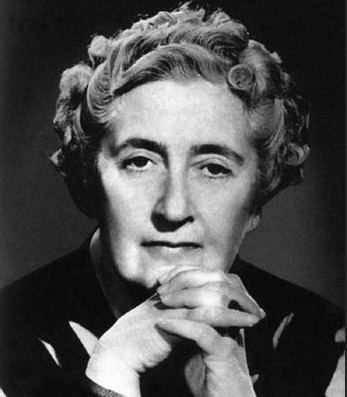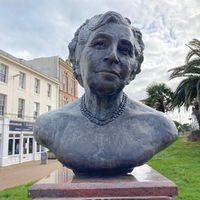How to cite this page Comment citer cette page
Christie, Agatha Mary Clarissa, née Miller
Person
- Media metadata | Métadonnées multimédias
- has biography | a une biographie
- British detective fiction writer, creator of the characters Hercule Poirot and Miss Marple. She was married twice, the second time to the archaeologist Max Mallowan, whom she accompanied on several field trips in Iraq, Syria, and other places in the Middle East. These trips were enabled by the fact of British imperialism in the region. They were also associated with the cultural predation of twentieth-century archaeology. Christie's husband, Max Mallowan, was a devoted admirer of Gertrude Bell, whose enormous political influence on mandatory Iraq remains a contentious legacy. As the first director of the Iraq Museum, Bell designed Iraq's first antiquities law, which allowed archaeological excavators to remove 50% of their finds; these were priceless antiquities currently housed in museums in the West. Many of Christie's widely loved and enjoyed detective novels are set in Middle Eastern locales. They are replete with Orientalist stereotypes.
- was born | est né
- 15 September 1890
- died in | est mort par
- 12 January 1976
- has nationality | a la nationalité
- United Kingdom of Great Britain and Ireland
- has type | est de type
- depicted
- is referred to by | est référencé par
- Wikipedia
- The Home of Agatha Christie
- Christopher Prior, "An Empire Gone Bad: Agatha Christie, Anglocentrism and Decolonization," Cultural and Social History, 15: 2 (2018), 197-213
- Nadia Atia, "Murder in Mesopotamia: Agatha Christie's Life and Work in the Middle East," in Nadia Atia and Kate Houlden eds. Popular Postcolonialisms: Discourses of Empire and Popular Culture (New York: Routledge, 2018), pp. 89-107


